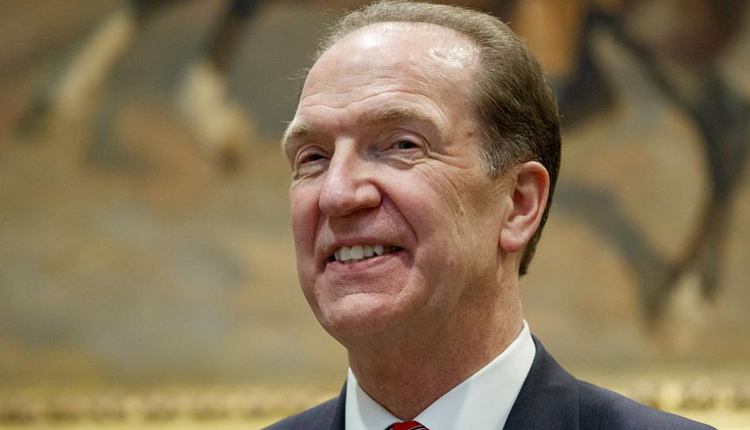U.S. Treasury’s David Malpass named World Bank president
The executive board of the World Bank on Friday unanimously approved David Malpass as the bank’s 13th president.
The 63-year-old senior U.S. Treasury official will commence his five-year term as President of the World Bank on Tuesday, replacing former President Jim Yong Kim following his unexpected departure three years before the end of his term.
Malpass has been a critic of the World Bank and its sister organisation, the International Monetary Fund. He has deemed the global lending institutions’ lending practices “corrupt” and complained that China received too many loans at the expense of poorer countries with limited access to credit markets.
Malpass, who had joined Donald Trump’s presidential campaign as an economic adviser, was serving as Under Secretary of the Treasury for International Affairs for the United States. He represented the United States in international settings, including the G-7 and G-20 Deputy Finance Ministerial, World Bank-IMF Spring and Annual Meetings, and meetings of the Financial Stability Board, the Organisation for Economic Cooperation and Development, and the Overseas Private Investment Corporation.
U.S. President Donald Trump described Malpass as a “highly appreciated” and “brilliant” man. It can be “no better candidate” for World Bank leadership. Malpass himself announced in the White House that he wanted to work for “constructive reforms” on the multinational development bank. “I am very optimistic that we will be able to make a breakthrough for growth abroad,” he added. This will contribute to the “fight against extreme poverty” and create more economic opportunities in developing countries.
In his role as Under Secretary, Malpass played a crucial role in several major World Bank Group reforms and initiatives, including the recent capital increase for IBRD and IFC. He was also instrumental in advancing the Debt Transparency Initiative, adopted by the World Bank and IMF, to increase public disclosure of debt and thereby reduce the frequency and severity of debt crises.
Prior to this, Malpass was an international economist and founder of a macroeconomics research firm based in New York City. Earlier in his career, he served as the U.S. Deputy Assistant Secretary of the Treasury for Developing Nations and Deputy Assistant Secretary of State for Latin American Economic Affairs. In these roles, he focused on an array of economic, budget, and foreign policy issues, such as the United States’ involvement in multilateral institutions, including the World Bank.
Malpass has served on the boards of the Council of the Americas, Economic Club of New York, and the National Committee on US–China Relations. He earned his bachelor’s degree from Colorado College and his MBA from the University of Denver. He undertook advanced graduate work in international economics at the School of Foreign Service at Georgetown University.


